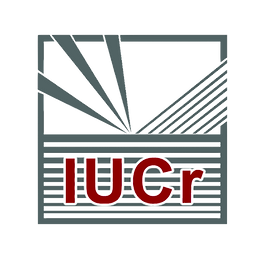
Awards
The 2023 Jean-Marie Dubois Award
The Jean Marie Dubois Award was established to recognize important, sustained research on any aspect of quasicrystals within the 10-year period preceding the award. The award consists of a cash prize and a plaque, and is made possible by an endowment administered by the Iowa State University Alumni Foundation. The International Advisory Board of the Fifteenth International Conference on Quasicrystals is pleased to announce that the recipient of the 2023 Jean Marie Dubois Award for Excellence in Quasicrystal Research is Prof. Michael Baake.

Photo credit: Robert V. Moody
Michael Baake, Professor of Mathematics at Bielefeld University, Germany, will receive the Jean Marie Dubois Award in recognition of his development of mathematical tools that relate sets of point scatterers to their diffraction patterns, thereby elucidating the notions of an aperiodic crystal and of long-range structural order.
Prof. Michael Baake received his Ph.D. in Theoretical Physics in 1987 from the University of Bonn, where he focused on supersymmetry in nuclear physics and statistical mechanics. With a habilitation in Mathematical Physics from the University of Tübingen, his research focus transitioned into the mathematical theory of quasicrystals, of which he has become one of the world’s foremost leaders.
Prof. Baake has made pioneering contributions to the study of the relationship between the diffraction spectra of point sets, the spectra of dynamical systems, and the existence of long-range order. In doing so he pushed the boundaries of research on quasicrystals, considering such systems as cut-and-project sets with unconventional windows, substitution tilings with randomness, and the sets of visible points on a lattice, in many cases writing the defining papers. Michael is very much appreciated for his dedication to disseminating the mathematical ideas underlying the notion of aperiodic order, most-notably with his book series Aperiodic Order, co-authored with the late Uwe Grimm, as well as for his leadership, and for his devotion to his students and postdocs.
Past awards were given to:
ICQ9 (Ames IA, May 2005) – Prof. An-Pang Tsai
ICQ10 (Zürich, June 2008) – Prof. Walter Steurer
ICQ11 (Sapporo, June 2010) – Prof. Marc de Boissieu
ICQ12 (Krakow, September 2013) – Prof. Ron Lifshitz & Prof. Yasushi Ishii
ICQ13 (Kathmandu, September 2016) – Prof. Marek Mihalkovič
ICQ14 (Kranjska Gora, May 2019) – Prof. Alan Goldman
Jean-Marie Dubois is an emeritus director of research at CNRS, France, and a scientific adviser at Jozef Stefan Institute (JSI), Slovenia. His research focuses on complex metallic alloys (CMA), particularly quasicrystals, where he has made major contributions. He has explored applications of quasicrystalline alloys in industries such as aviation, developing low adhesion coatings and thermal barriers. As the coordinator of the CMA network of excellence, he played a key role in establishing the topic in Europe. Dubois founded the Institut Jean Lamour, the largest materials science laboratory in France, and has authored books and approximately 400 Journal articles. He has delivered numerous invited talks worldwide and received many awards, honorary degrees, and honorary memberships for his contributions to science.

Photo credit: Dominique Dubaux
IUCr Award for Young Scientists
We are happy to award IUCr fellowships to young scientists to assist them in attending the conference. Young scientists, according to the IUCr, are graduate students, post-graduate students or post-doctoral fellows with a maximum age of 30 (exceptionally 35). Participants outside this age group may be considered Early Career scientists and are eligible to receive awards provided they are graduate students, post-graduate students, post-doctoral fellows or within five (5) years of receiving a graduate degree.
We are proud to announce the recipients of the IUCr Awards for Young Scientists at ICQ15:
-
Bryan Ceasar L. Felipe, Central Luzon State University, Philippines
- Liam Chandler, University of Liverpool, UK
-
Domagoj Fijan, University of Michigan Ann Arbor, USA
-
Paul Hege, University of Tübingen, Germany
-
Masahiro Hori, University of Saskatchewan, Canada & Tokyo University of Science, Japan
-
Neil Manibo, Bielefeld University, Germany
-
Naima Saadi, University of Liverpool, UK
-
Yagnesh Shadangi, Seoul National University, South Korea
-
Luis S. Silvestre Jr., Ateneo de Manila University, Philippines
-
Nydia R. Varela-Rosales, Friedrich-Alexander-Universität Erlangen-Nürnberg, Germany
-
Kelly Wang, University of Michigan Ann Arbor, USA
-
Robert F. B. Weigel, Friedrich-Alexander-Universität Erlangen-Nürnberg, Germany
